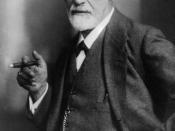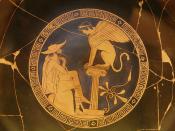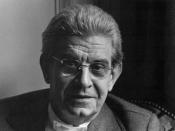Where did religious faith originate and why has it persisted throughout human history to modern times? This is a burning question which has occupied the thoughts of great scholars and theorists for many centuries. Yet, no single theory ever put forward has been capable of satisfactorily accounting for all the data or stand the test of informed criticisms. Of such theories aimed at explaining the origins of religion, several stand out separate from the rest due to their extraordinary and unique perspectives on the issues. Sigmund Freud believed religion to be an illusion manifesting itself as a collective neurosis in society at large (Freud, 1991). He was convinced that religious faith is a means to wish fulfillment and was hopeful that humans would eventually succumb this psychopathology and relinquish their religious beliefs and practices. Walter Burkert on the other hand maintains that religion did not develop in a void, but rather is the product of thousands of years of co-evolution between biology and culture.
For Burkert, religion is an evolutionary adaptation which functions to maintain social cohesion and diffuse natural yet destructive human impulses. To answer the second part of the question posed above, we find the theories of Max More on the persistence of religious faith to be rather informed and insightful. More believes religion to be "a pre-scientific system of explanation and technology; a source of meaning, direction and emotional expression in life; a means of social control; and a means of coping with uncertainty and death" (More, 1990). Finally, there the a viewpoint of large group of people deemed as atheists who are, by definition, those "who do not believe in a deity, God or supreme being" (Barnett, 1999). Atheists believe the persistence of religion to be due to its dynamic ability to change alongside with society...


